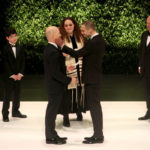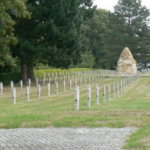A leading nation for gay respect and rights
There’s a good reason for the International Lesbian and Gay Association to be based in Brussels in Belgium: the country is one of the most progressive societies in the world in recognizing LGBT citizens as fully equal to everyone else.
Belgium is a small country of 11,730 square miles (about the size of Maryland) with a population of 10 million there are three languages (Dutch, French and German) and three regions (Flanders, Wallonia and Brussels). Each region has a distinct degree of governance in regional affairs. Indeed, there are many Flemish who would like to secede and have total autonomy.
Despite the trauma of two world wars, Belgium has retained its old-world charm in the preservation of its ancient buildings and historical traditions. Brussels is the Belgian capital and the sometimes controversial administrative centre for the European Union, earning the city the dubious title of the Capital of Europe. It also houses the NATO headquarters.
Historically Belgium is considered an imperial aggressor for its colonization, starting in 1885, of the enormous Congo territory in Africa (40 times larger than Belgium–400,000 square miles!) under the brutal King Leopold II (died 1909). Belgium held the Congo (less brutally after 1908) until independence in 1960.
During the 20th century the Belgian parliament was far more tolerant than any monarch and for a hundred years a liberal culture emerged–perhaps because of its linguistic diversity and its straddling the cultural boundary between Germanic and Latin Europe–which embraced gay rights culminating in 2003 as the 2nd country in the world to legalize gay marriage–after Holland. It has also helped that Belgium is largely a secular country as the constitution provides for freedom of religion, hence little fundamentalist religious homophobia. Surprisingly homosexuality has been decriminalized since 1843 and there is no law against homosexuals unless it involves criminal behavior.
In the late 70s and early 80s the Belgian gay community organized a number of street demonstrations to raise visibility and demand equal rights. The first one was held on 5 May 1979 in Antwerp. Over the years, their pride celebrations have expanded and become more activist.
More than just a flamboyant parade of drag queens, leather boys and gym buffs on floats (though those are fun) the gay people of Brussels and Belgium take Gay Pride celebration very seriously and it is more of a political demonstration where the gay movement’s political agenda is presented in the form of a list of demands including demands for better anti-discrimination laws, inclusion of gay relationships in high-school sex education and the right to adoption by same-sex parents. In April 2006, gay citizens did receive adoption rights when parliament voted into law a controversial bill allowing homosexual couples to adopt children.
June is the biggest month for Pride with some cities observing Pride earlier or later. In Brussels, since 1966, they celebrate it in May. The age of consent was equalized to 16, regardless of sexual orientation or gender, in 1985. Homosexuals are not banned from military service.
Belgian gay rights activists are grouped into several organizations. Several of these are part of the Holebifederatie (http://www.holebifoon.be/), an association of Dutch-speaking GLB organizations in the Flemish and Brussels regions of Belgium. The French-speaking counterpart in the Walloon and Brussels regions is the Federation des Associations Gayes et Lesbiennes.
For a good touristic description of three of Belgium’s attractive cities–Bruges, Ghent. Liege–and their numerous gay venues see Rich Rubin’s article in Passport magazine. In that story he writes: “Ghent is one of the most open cities of Belgium,” declares Davy Slycken of the Holebifederatie, the umbrella organization that oversees around 100 GLBT groups. “The city has always supported gay groups,” he asserts, and the building we’re sitting in is proof. a former police station, this 17th century, three-story wonder–Casa Rosa–was donated by the city of Ghent in 1999 and houses the Holebifederatie (‘Holibi’ is a local word from abbreviations for ‘homosexual’, ‘lesbian’ and ‘bisexual’) and several other groups, as well as a first-floor bookshop/information center.”
Rubin continues, “There’s an amazing variety of groups, from theatre, sports, and performance to the youth group Verkeerd Geparkeerd (‘wrongly parked’) and Vieux Rose for lesbians over 50. Casa Rosa is always hopping with an event from one of the many groups, most of which welcome foreign visitors to their activities. November’s Lesbian Day brings a full day of workshops, performances, and a women-only party; July’s huge Ghent Festival sees a major Casa Rosa presence.”
And this is just one of Belgium’s cities–where gay life is just another way of life.
Nevertheless, much as there is to celebrate in Belgium, the number of residents infected with the HIV virus increased by 20% in 2006 with most of the new diagnoses among homosexual men. Over a five year period the number of diagnoses in this group has doubled, a worrying and dramatic increase. “There is more HIV infection among homosexual men, and at the same time the group is only a small percentage of the entire population,” said one health official. The rise mirrors increases in other western countries as the first ‘post-retroviral’ generation of gay men are seduced by the myth that AIDS is just another disease managed by medication and risky sexual behavior again becomes common. This, despite aggressive education and information available in Belgium. It sadly reveals that even in this most liberal and progressive culture that offers LGBT people opportunities for a full life some still choose to put that life in jeopardy.
Belgium is close to a paradise for same-sex love and freedom. And with that freedom comes responsible choice. There is much to love here.
Also see:
Gay Bruges
Gay Ghent
Gay Liege
LGBT Rights in Belgium
Gay Belgium News Reports
















